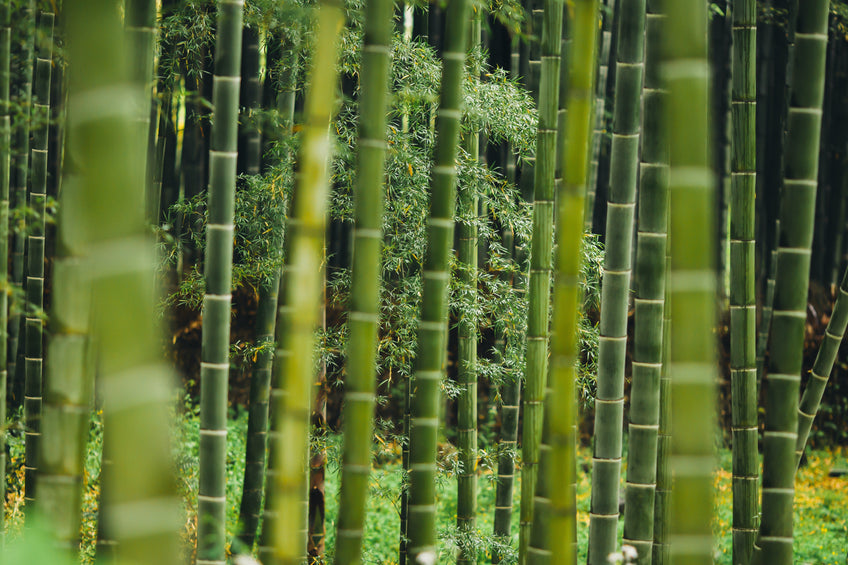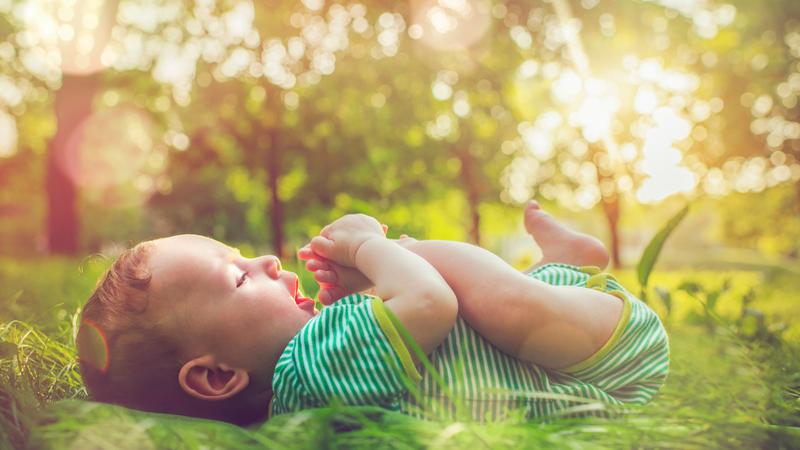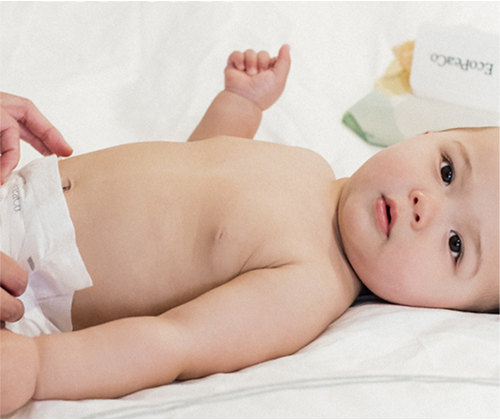When parents are considering which diapers to get, they’re often weighing the pros and cons of disposable and cloth diapers. But did you know there’s another important diaper feature to consider? That’s right: assessing bamboo vs. cotton diapers is a big part of the diapering decision. These materials set the foundation of the diaper, and impact things like softness, absorbency, and environmental impact.
To help decide if bamboo or cotton diapers are right for your family, we’ve collected the top factors to consider.
How bamboo diapers are different from cotton diapers
When you hear the term “bamboo diapers,” you might envision stiff, uncomfortable material. Luckily, that's a far cry from the reality of most bamboo diapers. Bamboo diapers can offer a range of benefits that can seriously enhance your diapering endeavors, and is very different from cotton in many ways.
Here are a few features of bamboo vs cotton cloth diapers to consider:
Moisture wicking
Bamboo wicks moisture away from the skin, keeping baby drier, and minimizing the chance of them developing a diaper rash. This feature is enhanced by the breathability of bamboo. Cotton cloth diapers need to be changed more often, as they don’t wick moisture away as well.
Leaner fit
If you’re sitting there searching, "how are bamboo diapers made,” know that they don’t require as many layers of material as cotton diapers, meaning they’re less bulky and more comfortable. Nice.
Properties
Bamboo can help repel microbes, unlike cotton. Although it shouldn't be considered fully antibacterial, it can help cut down on the growth of bacteria and other microorganisms in the diaper. Diapers made of bamboo are hypoallergenic and help keep moisture away from baby's skin. This reduces your baby’s chance of developing an allergic reaction to diapers.
Is bamboo more absorbent than cotton?
Many parents are surprised to find out how much more absorbent bamboo is than cotton. Bamboo fibers have been found to be able to absorb 70% more liquid than cotton, and can take in three times their weight in water. This feature makes bamboo diapers great for overnight use, because they can hold so much liquid. This ability to keep baby dryer for longer at night has the added benefit of potentially getting you and your child more quality sleep, as they won’t be awakened as often by a wet diaper. That's a win-win in our books! The heightened absorbency can also be helpful when traveling, or even just running errands, since you won’t have to find places to change your child’s diaper as often.
Are bamboo diapers better for the environment?
In addition to being incredibly absorbent, plant-based diapers made of bamboo are also better for the environment than many alternatives. As baby’s will use around 3,000 diapers in their first year, utilizing a diaper that’s eco-conscious can make a big difference.
- A prime benefit of bamboo diapers is that they’re biodegradable, meaning they’ll break down and be reabsorbed by the Earth in a relatively short period of time. For example, Eco Pea Co. diapers degrade by more than half just 2 - 3 months after disposal, as long as the conditions are right. Most other diapers take around 500 years to decompose.
- Bamboo is truly amazing in that it can grow up to four-feet in one day, and is always being replenished. In addition, most bamboo species can mature in as little as three to six years. Because of all this, bamboo is one of the most renewable, eco-conscious resources.
- Growing bamboo isn’t harmful to the environment, as it doesn’t require pesticides or herbicides, needs small amounts of water, doesn’t call for irrigation, and doesn’t have to be replanted, since it regenerates from its roots. In addition, it helps Earth’s atmosphere by absorbing carbon dioxide and releasing 35% more oxygen than trees of the same size.
Is bamboo softer, and more elastic than cotton?
In addition to being an eco-conscious choice, bamboo is also incredibly soft. And because diapers will be on your child pretty much all the time, this softness can make a big difference. Bamboo fabric is actually so soft it’s sometimes referred to as “artificial silk,” and easily beats out fabrics like cotton in softness.
Adding to the comfortability is the premium elasticity of bamboo: diapers made from this material are often more flexible, and maintain a good seal. So, with bamboo diapers you’re enhancing your baby’s comfort and minimizing leaks.
Does Bamboo Breathe As Well As Cotton?
While most people know that cotton is a breathable fabric, many don’t realize that bamboo is often even more breathable. This breathability enhances baby’s comfort, and even reduces the build-up of odors, as the air circulation limits the amount of odor-causing bacteria that grows in the diaper.
If you live in an area with hot, humid weather, diapers can stick to baby’s skin, which can lead to a lot of discomfort. But because bamboo diapers are so breathable, fast drying, and thermal regulating, they significantly minimize the chance of baby getting fussy from a sticky diaper.
The gist: bamboo diapers offer an impressive assortment of benefits, many of which cotton diapers don’t offer, at least at the same level. This increasingly popular type of diaper is in-demand by parents in the know, because it provides the major perks of eco-consciousness, affordability, and safety and comfort for baby. And because your baby will use so many diapers in their first year, it makes sense to select a diaper that’s kind to your bank account, the planet, and of course, your baby!


